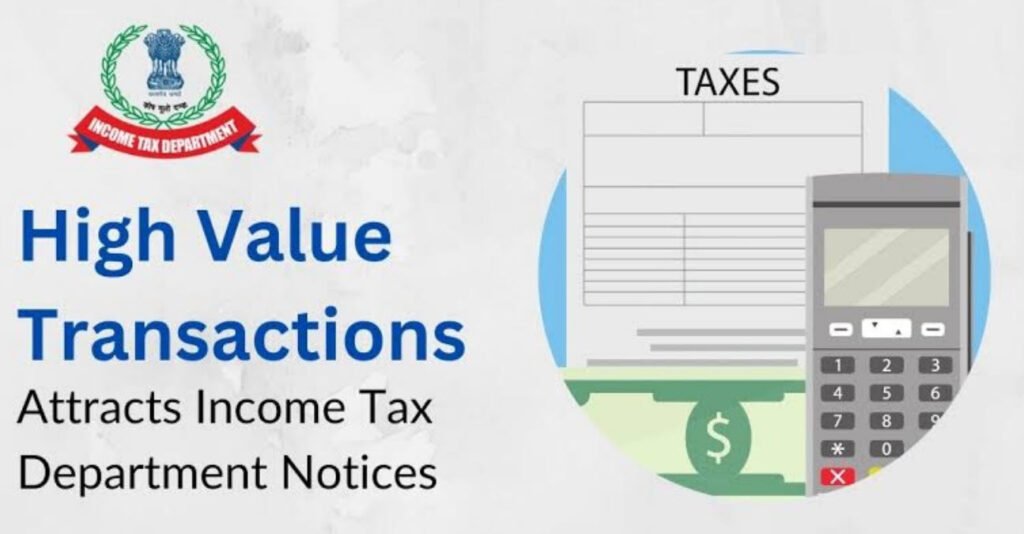
In an effort to curb black money and ensure transparency in financial transactions, the Income Tax Department has set certain threshold limits for high-value transactions. Crossing these limits may trigger a notice from the department. Here are the 10 high-value transactions that you should be aware of:
1. Cash Payment for Purchasing Demand Draft or Prepaid RBI Instruments:
Any cash payment for purchasing demand drafts or other RBI instruments exceeding ₹10 Lakh in a financial year.
2. Cash Deposits in a Savings Account:
Cash deposits exceeding ₹10 Lakh in one or more savings account of a person in a year.
3. Cash Deposit or Withdrawal from a Current Account:
Cash deposit or withdrawal totaling ₹50 Lakh or more in a year in one or more current accounts of a person.
4. Sale or Purchase of An Immovable Property:
Sale or purchase of immovable property valued at ₹30 Lakh or more.
5. Investments in Shares, Mutual Funds, Debentures and Bonds in Cash:
Investments in shares, mutual funds, debentures, and bonds in cash exceeding ₹10 Lakh in a financial year.
6. Payment of Credit Card Bill in Cash:
Payment of ₹1 Lakh or more towards credit card bills in cash in a year.
7. Payment of Credit Card Bill Other Than Through Cash:
Payment of ₹10 Lakh or more towards credit card bills through any mode other than cash in a year. This includes payments across all credit cards.
8. Sale of Foreign Currency:
Sale of foreign currency aggregating to ₹10 Lakh or more during a financial year.
9. Sale And Credit of Forex Card:
Sale and credit of forex card with an amount aggregating to ₹10 Lakh or more during a financial year.
10. Cash Deposit in FD or RD:
Cash deposits totaling ₹10 Lakh or more in a year in one or more Fixed Deposit or Recurring Deposit accounts.
To keep track of these transactions and avoid any potential notices from the Income Tax Department, taxpayers can download the ‘AIS for Taxpayer‘ app. Moreover, taxpayers can periodically check Form 26AS or log in to the Income Tax Portal and visit the e-Campaigns tab.
Remember, being aware of these high-value transaction limits can help you plan your finances better and avoid unnecessary trouble with the Income Tax Department.
You may also like:- 14 Dirty Little Secrets That Will Boost Your Productivity
- Prove Lack of Funds or Face Audit – NCLT’s Directive to Byju
- How to Validate Your Business Idea Before Investing Time and Money
- Warren Buffett Eyes ‘Unexplored’ Opportunities in India
- Reliance Industries’ Wyzr – A New Contender in Consumer Electronics
- 5 Reasons Why Feedback is Important
- Breaking News: Republic First Bank Collapses, Seized by Regulators
- Ashneer Grover’s Another Inning in Fintech with ZeroPe App
- ITR E-Filing AY 2024-25 – Key Things to Keep in Mind
- India-Based Startups: A New Force in the US Consumer Market









This Post Has One Comment